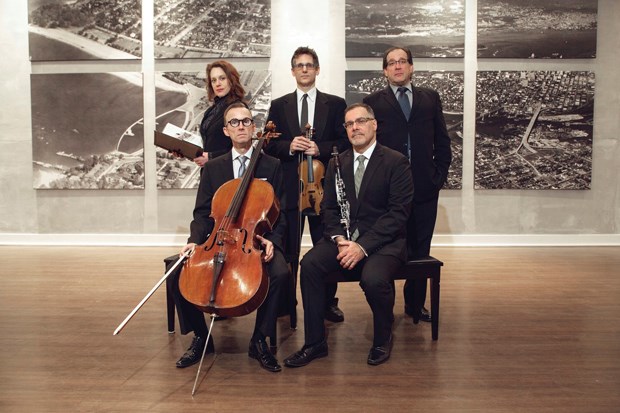Renia Perel's Songs of the Wasteland, Tuesday, Jan. 26, 7:30 p.m. at Koerner Recital Hall at the Vancouver Academy of Music, 1270 Chestnut St., Vancouver. Tickets: $10/$5 at vam.eventbrite.ca.
On Jan. 27 each year, the United Nations marks the anniversary of the liberation of the Auschwitz concentration camp with a special day of recognition.
This year, on the eve of the UN's International Day of Commemoration in Memory of the Victims of the Holocaust, a group of local musicians are coming together to perform a work that pays tribute to the past and promotes healing in the present.
Written by Holocaust survivor Renia Perel, Songs of the Wasteland tells her personal story of tragedy and triumph. Born in Poland in 1930, Perel and her older sister were able to live through the Second World War using false papers that identified them as non-Jewish Ukrainian labourers. Now a Vancouver resident, she composed her musical drama in memory of her family and the millions of Jewish people who were killed in Europe under the Nazi regime.
Songs of the Wasteland made its world premiere in 2010 at the Chan Centre for the Performing Arts. Next week's concert, the second live performance of Perel's piece, brings together Vancouver Academy of Music faculty members Joseph Elworthy (cello), Robyn Driedger-Klassen (soprano) and Mark Ferris (violin), along with noted Vancouver musicians Francois Houle (clarinet), Lani Krantz (harp), Kozue Matsumoto (koto) and former West Vancouver resident Mark Fenster (baritone).
As the son of two Holocaust survivors, Fenster says performing Songs of the Wasteland has special meaning for him.
"My dad was separated from the family and he was carted off to a work camp," he explains. The commandant at that camp received orders to have those 150 prisoners taken to Auschwitz for extermination, Fenster continues. "Knowing that, this commandant, this SS officer went with the prisoners and pleaded with the commandant at Auschwitz to save these prisoners because they were good workers - and it worked. The 150 people were saved that day."
Instead of Auschwitz, Fenster's father ended up in Buchenwald concentration camp where he was liberated after D-Day.
Meanwhile, his mother, born in Luxemburg, was smuggled out of a Nazi holding camp as a child and taken to the south of France where she was raised by a French Catholic family as one of their own.
"We still consider them family, even though there's no blood," Fenster says. "They were incredibly courageous, taking a chance for their own safety just to save this stranger of a little girl, who was two at the time."
Though the music and lyrics in Songs of the Wasteland reflect the sorrow and pain of the Holocaust, Fenster says the composition also conveys feelings of hope and gratitude in honour of all those who risked their welfare for the Jewish people. "There were lots of saviours, lots of really beautiful heroes and heroines."
Coincidentally, Fenster's father and Perel grew up in neighbouring towns in Poland. When Fenster learned of the geographical connection a few years ago, he got the two on the phone and listened to them speak in their native Yiddish - a language that experienced a massive and rapid decline as a result of the Holocaust.
"It absolutely brought me to tears," he says. The Vancouver Academy of Music has an educational mandate, and executive director Joseph Elworthy, who will play cello in Songs of the Wasteland, says the concert will expose academy students to "a profound work that will leave a very strong impression."
"There's not a lot of musical pieces that specifically tackle this subject manner in a chamber context," he says. "I would love Songs of the Wasteland to eventually be like Britain's War Requiem - something that is just synonymous with remembrance, and in this case obviously the Holocaust versus Armistice Day."
Raised in Vancouver, and non-Jewish, Elworthy says he grew up well aware of the profound tragedy of the Holocaust, but it felt "somewhat removed" from his community.
"Clearly it's not. Obviously we have survivors in our midst," he says. "This is obviously a subject matter that affects everyone, I mean, this is humanity we're talking about."
Fenster echoes that sentiment: "It affects each of us and all of us," he says. "We all feel the ripples of these kinds of events."



